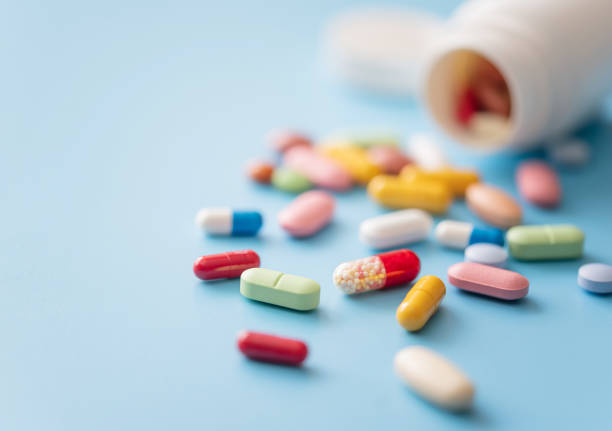If you or someone close to you is dealing with ADHD, you’ve probably already heard a lot about different treatment options. The truth is, ADHD medication can make a huge difference in how you focus, manage your time, and keep your day on track. But it’s also normal to wonder how these medicines work, which one might be best, and what kind of side effects or changes you might notice. In this guide, we’ll go over the basics in a very simple way so you can understand what to expect without feeling overwhelmed.
Understanding ADHD and How Medicine Can Help
When you have ADHD, your brain works a bit differently in the way it handles attention, activity levels, and self-control. This isn’t about laziness or not trying hard enough—it’s a neurological condition. Medicines for ADHD help balance certain brain chemicals so you can think clearer, stay calmer, and keep your focus where you want it.
In today’s world, people also explore different ways of getting their prescriptions. Some choose to buy adhd medicine online for convenience, while others get their prescriptions the traditional way through a doctor visit and a local pharmacy. No matter the method, the important thing is finding a treatment that is safe and effective for you.
The Two Main Types of ADHD Medication
There are two broad categories of ADHD medicines: stimulants and non-stimulants.
1. Stimulants
These are the most common. They work quickly—often within 30 to 60 minutes—and help by increasing certain brain chemicals like dopamine and norepinephrine. This makes it easier to pay attention, stay organized, and control impulses. Examples include methylphenidate and amphetamine-based medicines.
2. Non-Stimulants
These work in a different way and are usually prescribed when stimulants cause too many side effects or just aren’t a good fit. They may take a few weeks to show their full effect. Examples include atomoxetine and some blood pressure medicines used off-label.
How to Choose the Right Medicine for You
Finding the right ADHD medicine isn’t about picking the “strongest” pill. It’s about matching the medication to your body, your symptoms, and your lifestyle. For example, adhd tablets for adults may be dosed differently than those for children because adults process medicines differently and have unique daily demands.
This way, you get the best balance between benefits and side effects. Patience is important here—you may need to try more than one option before finding the right match.
What to Expect When Starting ADHD Medication
When you first start taking ADHD medicine, you may notice changes quickly, especially if you’re on a stimulant. You might find it easier to focus, follow through on tasks, and manage distractions. But it’s also possible to feel side effects like decreased appetite, trouble sleeping, or mild stomach upset.
For people who look for adhd medication no prescription through unofficial sources, it’s important to remember there are real safety risks. Medicines should be taken only under medical supervision to avoid harmful effects or incorrect dosing.
Possible Side Effects
Most side effects of ADHD medication are mild and improve over time, but you should always tell your doctor about them. Common ones include:
- Loss of appetite
- Difficulty sleeping
- Mild headaches
- Feeling jittery or anxious
- Stomach discomfort
Your doctor can adjust your dose or try a different medicine to reduce these effects.
Managing Costs and Accessibility
ADHD medicines can be expensive depending on where you live and your insurance coverage. Some people look for cheap adhd medicine options, including generic versions that work just as well as brand names. If cost is an issue, ask your doctor or pharmacist about patient assistance programs or discount cards.
How Long Do You Need to Take ADHD Medication?
Some people take ADHD medicine for many years; others use it for a shorter time. It depends on how much it helps and whether you can manage your symptoms without it. You and your doctor can decide together when (or if) it’s time to stop.
Lifestyle Habits That Work Alongside Medicine
While medication can be powerful, it works best when combined with healthy habits:
- Structured routines: Set regular times for meals, sleep, and work.
- Break big tasks into small ones: This keeps you from feeling overwhelmed.
- Use reminders and planners: Apps, alarms, or paper planners can help you stay on track.
- Stay active: Exercise helps improve mood and focus.
Online Pharmacies and Safety
With the growth of the internet, some people use an adhd drugs online pharmacy to fill prescriptions. While this can be convenient, it’s very important to choose licensed and reputable sources. Many unsafe sites sell counterfeit or expired drugs. Always check if the pharmacy is verified and requires a prescription.
Key Takeaways
- ADHD medicines can greatly improve focus, organization, and impulse control.
- There are two main types—stimulants and non-stimulants—and finding the right one takes time.
- Medicine works best alongside healthy daily habits.
- Always get your medicines from safe, reliable sources.
Final Thoughts
Starting ADHD medication is a personal journey. It’s not about changing who you are—it’s about helping your brain work in a way that supports your goals. With the right medicine, proper guidance, and healthy routines, living with ADHD can feel a lot more manageable.
If you keep an open mind, communicate with your doctor, and watch how your body responds, you’ll be able to find a treatment plan that works for you and fits your life.

